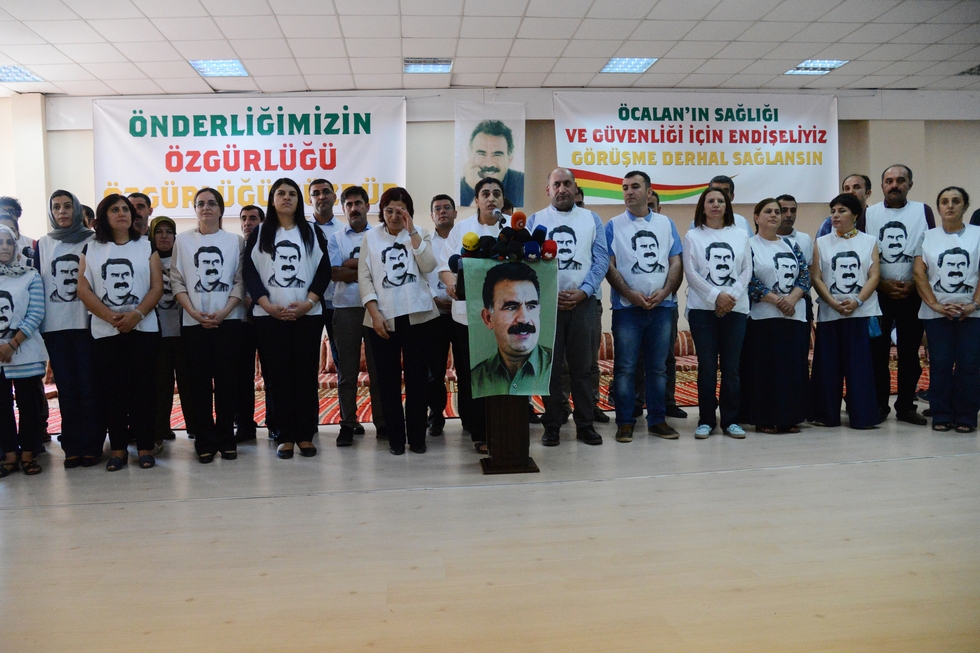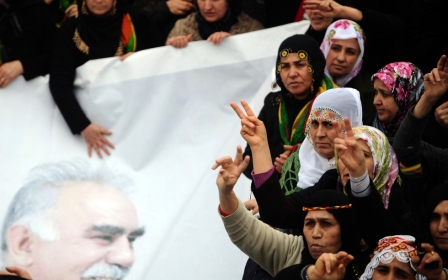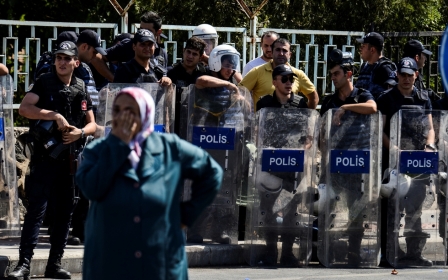PKK leader calls for peace talks in first statement for two years

Jailed PKK leader Abdullah Ocalan has called on the Turkish state to resume peace talks with the Kurdish militant group in his first statement since being "isolated" in April 2015.
Following a visit to his prison cell on Imrali island on Sunday, the Kurdish leader's brother Mehmet Ocalan relayed a statement on Monday to an audience in the Kurdish-majority city of Diyarbakir in southeast Turkey.
Ocalan said that the violence in the southeast, which has killed hundreds since July 2015, could be ended in six months if the Turkish government was willing.
"First of all, it wasn’t us who destroyed the process," he said, referring to a peace process which began in 2013 but collapsed last year.
"Yes, the Kurdish issue is a heavy issue. It’s not a matter of 20 years, it goes back 150, 200 years. Thirty people die every day. If the state was sincere, there wouldn’t be so many deaths. This country doesn’t deserve this. Everybody with a conscience must consider this."
His statement was read hours after an attack on a regional office of the ruling party, the AKP, in the eastern town of Van. Up to 48 people were reported injured in the blast, which Turkish officials blamed on the PKK.
He said that the current violence was a war that "nobody can win".
"The solution can’t be one-sided, the largest party is the state. If the state points to that, this problem won’t continue for too long, it will be resolved," Ocalan's message said.
His family's visit to the prison in the Marmara sea was timed to coincide with the Muslim festival of Eid al-Adha and marks the first such visit since April 2015 when he was "isolated" and denied communication with relatives or lawyers.
"Tomorrow is Eid, the feast of sacrifice, but when 30-40 people die every day in a country, there can be no feast," said Ocalan.
"This isn’t ethical. The solution is in our hands, we can solve it.”
Ocalan was a founding member of the Kurdish Workers' Party (PKK) in 1978 and soon rose to become its undisputed leader following violent internal struggles and purges.
After launching a guerilla war with the Turkish state, which has cost more than 40,000 lives, Ocalan was captured in Kenya in 1999 by Turkish intelligence in a joint operation with the CIA.
He was initially sentenced to death, but this was commuted to life imprisonment after Turkey's abolition of the death penalty.
A number of Kurdish and leftist activists started a hunger strike last Monday calling on the government to allow access to Ocalan.
Concerns had been raised since the 15 July coup attempt in Turkey over the welfare of the Kurdish leader.
On Monday, following the family visit, hunger strikers in Diyarbakir reportedly ended their strike.
According to research by the International Crisis Group, at least 1,958 people were killed between July 2015 and July 2016 in fighting between Turkish security forces and Kurdish militant groups.
Middle East Eye propose une couverture et une analyse indépendantes et incomparables du Moyen-Orient, de l’Afrique du Nord et d’autres régions du monde. Pour en savoir plus sur la reprise de ce contenu et les frais qui s’appliquent, veuillez remplir ce formulaire [en anglais]. Pour en savoir plus sur MEE, cliquez ici [en anglais].




